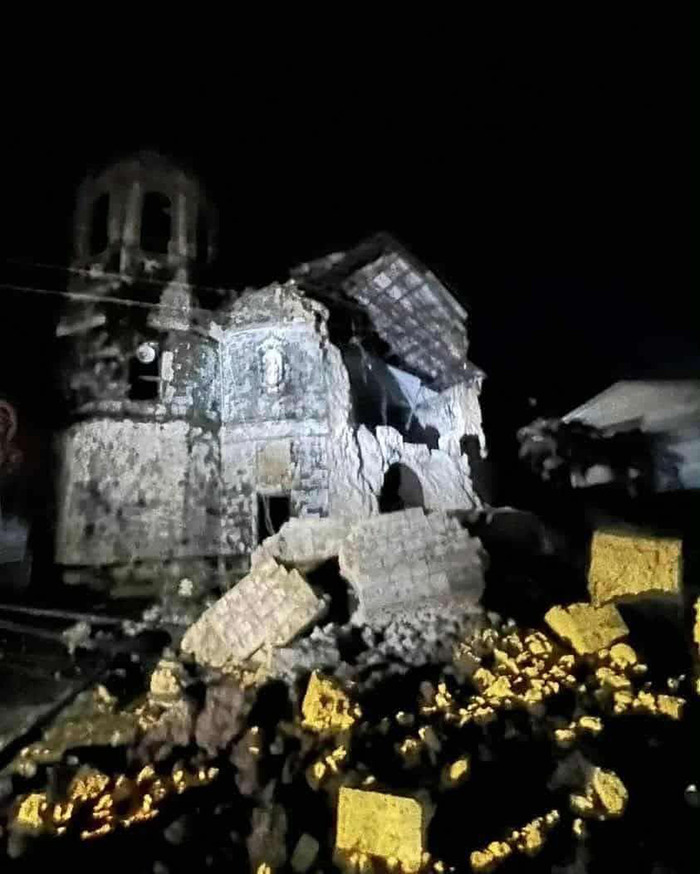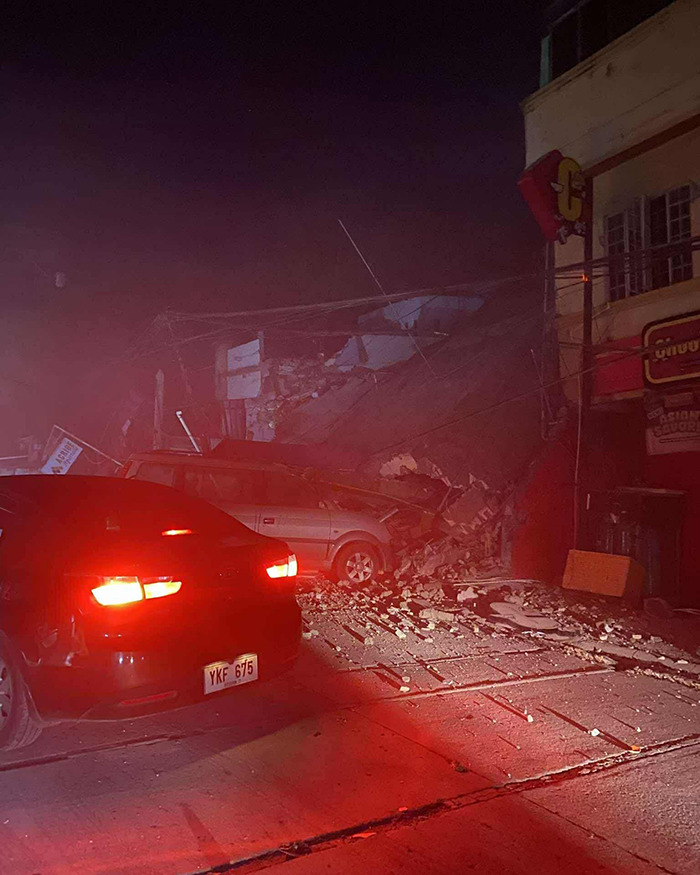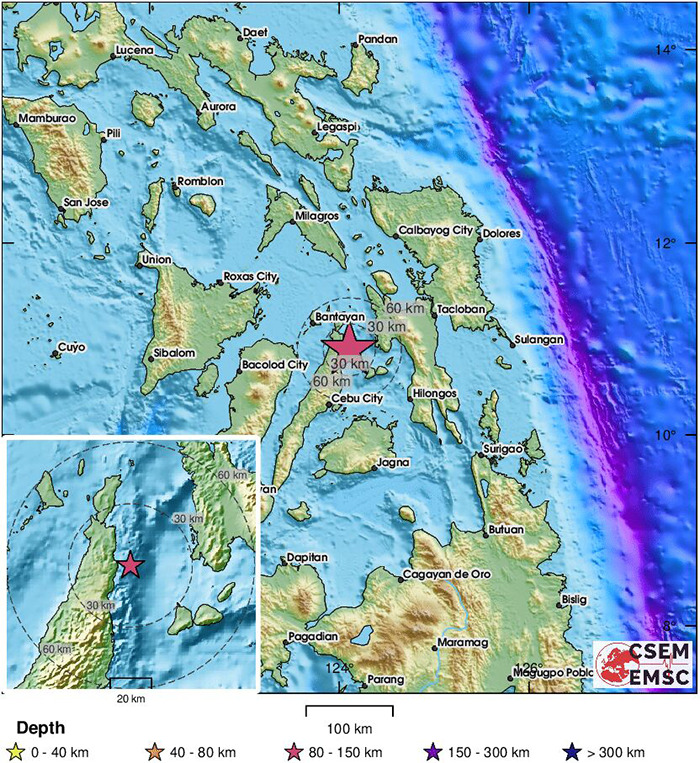The Philippines was shaken late Monday by a powerful earthquake with a reported magnitude of 6.9, striking near the country’s Bohol and Leyte provinces.
The tremor hit at a shallow depth of around 10 kilometers, according to the U.S. Geological Survey, sending strong shaking across multiple islands.
While no casualties or major damage have been confirmed so far, local authorities are urging vigilance as aftershocks and minor sea disturbances remain a possibility.
Strong shaking was reported across Cebu, Leyte, and neighboring islands

Image credits: FaytuksNetwork
The earthquake’s epicenter was located about 11 kilometers east-southeast of Calape, a municipality in Bohol province home to more than 30,000 people, according to Metro UK.
According to the USGS, more than half a million residents across the Visayan Islands reported feeling very strong shaking, particularly in northern Cebu and Leyte.
Local seismology officials confirmed that an aftershock of magnitude 5.2 was recorded soon after the initial quake, intensifying concern among residents in the affected areas.

Image credits: FaytuksNetwork
In Leyte, an island of more than 2.6 million people, emergency services were placed on high alert.
The region has a history of quakes, making locals especially wary of buildings and other structures that may not be able to withstand strong tremors.
Although the Pacific Tsunami Warning Center has stated that there is no tsunami threat from the recent earthquake, local officials issued a cautionary advisory nonetheless.
It urged residents in Leyte, Cebu, and Biliran, in particular, to “stay away from the beach and not to go to the coast” in case of a minor sea-level disturbance triggered by the seismic activity.
The Philippines gets hit by numerous earthquakes annually, since it is located in the Pacific Ring of Fire

Image credits: LastQuake
Earthquakes are not uncommon in the Philippines, which sits on the Pacific Ring of Fire, an area notorious for volcanic eruptions and frequent seismic activity.
While minor quakes that are too weak to be felt by humans occur almost daily in the region, stronger ones like Monday’s event pose a far greater threat due to the possibility of landslides, collapsed buildings, and aftershocks.
The USGS warned that poorly constructed or outdated structures in the affected areas could face “considerable damage,” according to CNN Philippines.
Even well-built homes and offices may experience “slight to moderate damage” when exposed to this level of ground shaking, the USGS noted.
The situation is especially concerning for rural communities in the Philippines, where construction standards are less rigorous.
Historical locations in the Philippines have unfortunately been damaged by the earthquake

Image credits: FaytuksNetwork
According to the International Business Times, the magnitude 6.9 earthquake has unfortunately resulted in damage to some heritage sites across northern Cebu.
These include the Archdiocesan Shrine of Santa Rosa de Lima, a historical shrine whose partial collapse has been shared widely on social media, as well as the Parroquia de San Pedro Apostol Bantayan, whose facade has incurred damages during the tremors.
Other social media videos and photos posted by residents in affected areas showed numerous people evacuating from buildings and malls out of caution.
As a result of the earthquake, classes have been suspended in all levels across Cebu. The provincial government of Iloilo also suspended work in the provincial capitol.
Netizens shared their comments about the Philippines’ big earthquake on social media










 Follow Us
Follow Us





